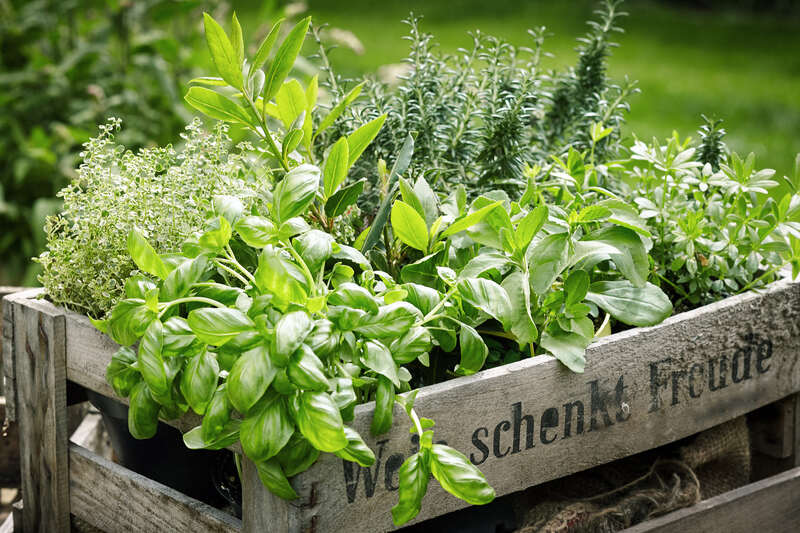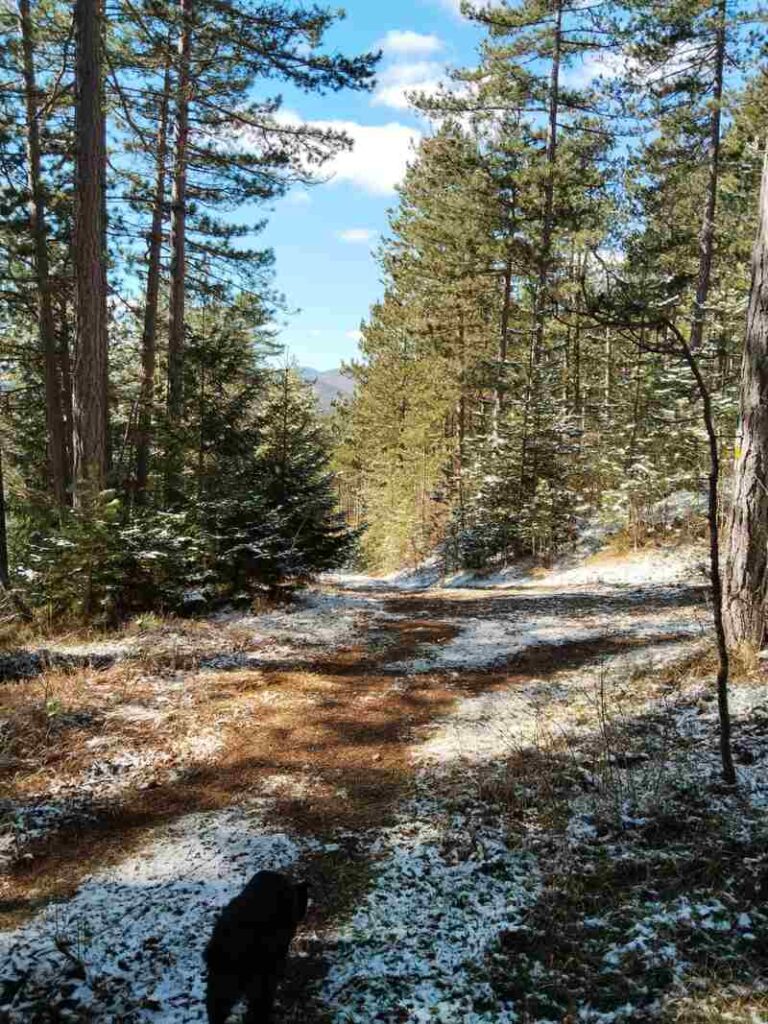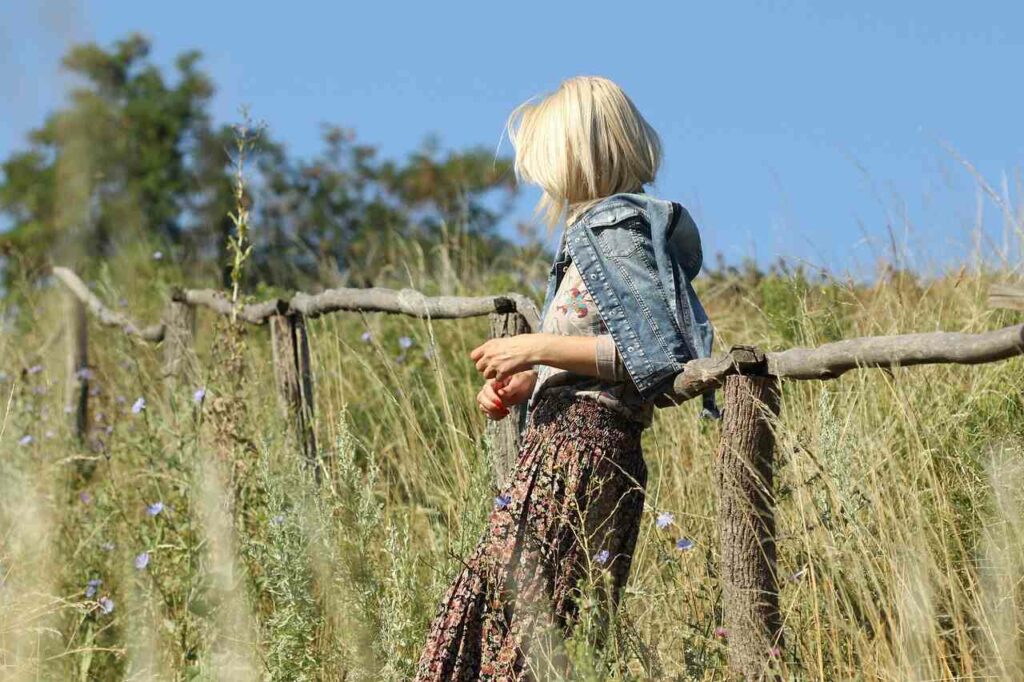22 pros and cons of countryside living—that’s what this guide is all about. If you’ve been dreaming of soulful rural living, open skies, and a slower, more grounded life, this is your invitation to explore whether the countryside truly suits your soul.
Countryside living offers a lifestyle rooted in nature, simplicity, and authenticity—but it’s not for everyone. By looking at both the joys and challenges, you’ll discover what to love, what to prepare for, and how to know if a rural home is your next chapter.
What You’ll Discover in This Guide
🌾 What Makes Rural Peace So Powerful?
Among the most celebrated pros of countryside living is the peace it offers—not just silence, but space to actually hear yourself. In the fast pace of urban life, we forget how much noise we carry. But in the countryside, even your thoughts begin to breathe again.
This is the beginning of soulful rural living: a rhythm where time slows, mornings stretch, and nature whispers instead of shouts. You might find yourself waking early, not to rush, but to watch the light shift through the trees.
🕊 “The calm out here doesn’t just come from the landscape—it rises from within.”
In the full list of 22 pros and cons of countryside living, this inner stillness stands out. It’s not for everyone—but for those craving alignment, it’s a quiet revolution. One you feel in your bones.
🤝 Who Will Hold You When You Leave the City?
What Makes Rural Connection So Different?
One of the most overlooked pros of countryside living is the way connection changes. Instead of brief smiles in a crowded elevator, you’ll find neighbours who bring fresh eggs, check on you when the lights are out, or wave from across a golden field. It’s slower, but deeper.
You don’t need dozens of contacts—just a few souls who see you, who notice when you’re not there, and who make your days feel less like survival and more like home.
In rural areas, community isn’t about noise. It’s about knowing.
This human warmth is one of the quiet joys in the 22 pros and cons of countryside living—a kind of connection that grows like a garden: with care, patience, and time.
💬 “In the city, I was surrounded by people but felt alone. In the countryside, I’m alone more often—but never lonely.”
Choosing soulful rural living often means embracing less social “buzz” but discovering deeper, more nourishing relationships.
🌿 Where Freedom Feels Like Home
How Does Space Change the Way You Live?
There’s a kind of freedom that only wide-open land can offer. In the city, freedom often means anonymity. But in the countryside, it means breath, sky, and possibility. You begin to move differently. You garden barefoot, nap in hammocks, watch stars spill across black velvet skies.
This is one of the most liberating pros of countryside living: the physical and emotional space to expand. In the full scope of the 22 pros and cons of countryside living, this gift of space is both subtle and transformative.
Soulful rural living invites you to fill that space not with things, but with meaning—whether that’s a vegetable patch, a handmade bench, or just a quiet place to sit and be.
🌌 Real freedom isn’t loud. It’s the silence that lets you hear your own heart.
🍇 The Joy of Self-Sufficiency
What Does It Mean to Create from the Earth?
Another powerful entry among the 22 pros and cons of countryside living is the chance to be more self-sufficient. Out here, it becomes normal to grow your own food, compost leftovers, collect rainwater, and even build furniture from reclaimed wood.
Soulful rural living means aligning your actions with your values. When you plant herbs, pick tomatoes, or hang clothes to dry in the sun, your everyday choices become little acts of care—for yourself, and for the planet.
🥬 “It starts with planting a seed—and ends with remembering that you are part of nature, too.”
Self-sufficiency isn’t about doing it all. It’s about doing what matters most, and feeling deeply connected while you do it.

✨ Less Noise, More Soul
Can a Simpler Life Be a Richer One?
In the long list of 22 pros and cons of countryside living, simplicity is often underestimated. Yet it might be the very thing your nervous system has been craving. No traffic, no ads, no pressure to constantly produce.
Soulful rural living strips away distractions so you can rediscover what makes life feel full: slow meals, heartfelt conversations, time to think, time to be. Even doing laundry under the sun becomes a ritual instead of a chore.
Simplicity doesn’t mean doing less—it means doing more of what actually matters.
🍃 “A quiet life isn’t empty. It’s deeply, beautifully full.”
🌺 What Happens When You Breathe with the Land?
How Nature Becomes Part of You
Of all the pros of countryside living, the constant presence of nature might be the most life-changing. You don’t just walk through nature—you live with it. The wind speaks through the trees, the soil warms under your hands, and even the clouds seem to move in sync with your mood.
Soulful rural living creates a sacred intimacy with the Earth. You know the birds that visit your window, the scent of rain before it falls, the comfort of seasons changing. You start to realise that you don’t need to “go outside” to connect with nature—because you never really left it.
In the full reflection of 22 pros and cons of countryside living, this sense of belonging to the land is a return to something ancient, and beautifully human.
🌳 “In the countryside, you’re not just near nature—you are nature.”
🏛️ Is It Really More Affordable?
How Countryside Living Can Ease the Financial Pressure
In most parts of the world, one of the most appealing pros of countryside living is the lower cost of housing and day-to-day expenses. Rent or mortgage payments tend to be more manageable, and many daily costs—from groceries to property taxes—are lower than in urban centers.
This financial breathing room allows for more intentional choices. You might invest in natural materials, grow your own herbs, or finally build that tiny studio to support your creative passions. Soulful rural living isn’t about wealth—it’s about redefining richness on your own terms.
Among the 22 pros and cons of countryside living, the shift from financial stress to conscious spending can be life-changing.
💰 “In the countryside, wealth isn’t what you earn. It’s what you no longer need.”
🌈 What If the Sky Became Your Ceiling?
The Quiet Magic of Countryside Light and Space
It might sound poetic, but one of the overlooked pros of countryside living is the quality of natural light. Sunsets linger. Stars return. Even cloudy days feel different when you’re surrounded by open fields.
Light becomes part of how you live. You notice the way it spills across the floorboards in the morning. You plan your day around the rhythm of sunshine. You might even find yourself tracking moon phases without meaning to.
Soulful rural living means reconnecting with the elements—not just earth and water, but fire and air too. Light becomes sacred, and darkness no longer feels threatening.
As you explore the 22 pros and cons of countryside living, remember: beauty is more than aesthetic. It’s energetic.
✨ “When the stars become your ceiling, wonder becomes your roof.”
🧒 Where Children Can Be Wild and Free
Why the Countryside Nurtures a Different Kind of Childhood
For families, one of the most heartwarming pros of countryside living is the freedom children gain. Instead of screens and traffic, there are fields, forests, and treehouses. Days are filled with imagination, mud pies, and barefoot adventures.
Soulful rural living gives children the space to grow into themselves—unrushed, unprogrammed, and in tune with the earth. They learn not just facts, but seasons. Not just safety rules, but gut feeling. Nature becomes their playground, their teacher, and their friend.
🐾 “In the countryside, childhood runs wild—and so does joy.”
🔧 A Place to Build Your Own Rhythm
How the Countryside Invites You to Live on Your Terms
One of the quieter pros of countryside living is the gift of time that feels yours again. Without the frantic pace of city life, you begin to shape days that feel more aligned with who you are. Wake with the sun. Work with your hands. Cook slowly. Rest when you’re tired.
Soulful rural living encourages rhythms that are human, not imposed. You might replace alarms with birdsong, deadlines with garden tasks, meetings with moments of deep presence. Time becomes circular, seasonal, sacred.
Among the 22 pros and cons of countryside living, this return to natural time may be the most healing of all.
⏳ “It’s not about doing less. It’s about doing things in a way that feels true.”
🛠️ A Home You Can Shape with Your Own Hands
What It Means to Truly Make a Place Your Own
Unlike renting a tiny city flat, rural homes often invite creativity. One of the fulfilling pros of countryside living is the chance to renovate, restore, and reimagine your space. From hand-painted walls to reclaimed wood shelves, your home becomes a canvas for your soul.
Soulful rural living celebrates imperfection. A squeaky floorboard, a mismatched window frame—these become part of your story. You’re not just living in a house. You’re creating a sanctuary that reflects what matters to you.
🪵 “In the countryside, every corner can carry your fingerprint.”

🚗 Where Are the Shops, the Cafés, the Buzz?
Why Convenience Isn’t a Given in the Countryside
One of the more practical cons of countryside living is the lack of immediate access to shops, entertainment, or everyday services. Need a quick hardware fix, organic almond milk, or a café with Wi-Fi? You might be looking at a 30-minute drive.
In soulful rural living, these distances can encourage more intentional routines—but they also demand planning, especially for families or those without a car.
🛒 “Living slow doesn’t mean living without. But you’ll need to think ahead.”
Among the 22 pros and cons of countryside living, convenience may be the most noticeable shift—especially if you’re used to grabbing what you need on a whim.
💼 Where Do You Work When There Are No Offices?
The Challenge of Career & Income in the Countryside
While working remotely has opened new doors, one of the honest cons of countryside living is limited local job availability. Especially in creative, tech, or specialised fields, rural communities may not offer the same professional landscape.
That said, soulful rural living invites you to rethink success. Maybe it’s time to start that side business, work online, or trade your office hours for something more hands-on.
Still, the transition requires courage, clarity—and sometimes a stable internet connection that isn’t always guaranteed.
💻 “The dream of rural life is real—but the Wi-Fi might not be.”
In the full scope of the 22 pros and cons of countryside living, career considerations require some of the deepest personal reflection.
🌍 Is It Too Quiet—Or Just Lonely?
The Reality of Isolation in Rural Life
Silence can be sacred—but it can also be confronting. One of the emotional cons of countryside living is the experience of isolation, especially for extroverts, singles, or those moving without community ties.
Soulful rural living asks you to build connection slowly and intentionally. That might mean joining local groups, showing up at farmers markets, or simply saying yes when someone invites you in.
But some days, the quiet may echo. That’s part of the work, and part of the reward.
🌫️ “In the countryside, loneliness doesn’t knock. It just quietly settles in—unless you meet it halfway.”
🏥 What If Help Is Too Far Away?
The Challenge of Healthcare and Emergency Access
One of the more serious cons of countryside living is limited access to healthcare. Whether it’s a routine check-up or an unexpected emergency, services are often miles away—and availability can be scarce.
In soulful rural living, prevention becomes your partner. Healthy routines, mindfulness, and natural remedies often take centre stage. But even the healthiest person may need a hospital now and then.
🚑 “It’s not about fear. It’s about knowing who you’ll call when life surprises you.”
Among the 22 pros and cons of countryside living, access to care is not something to ignore—it’s something to prepare for.
🚌 What If You Can’t Just Hop on a Bus?
Transportation Realities in Rural Life
Forget walking to the corner or jumping on the next tram. One of the day-to-day cons of countryside living is the near-total dependence on cars. Public transportation is rare, and distances are long.
Soulful rural living often includes intentional routes, ride-sharing, or even electric bikes—but none of these replace the convenience of city mobility.
It’s not just about errands. It’s about knowing how you’ll move through your life—especially if circumstances change.
🚗 “In the countryside, the road is always part of the journey.”

This item in the 22 pros and cons of countryside living is often underestimated—until winter hits, or the car doesn’t start.
🐾 Are You Ready for Wild Weather—and Wildlife?
Environmental Risks and Natural Surprises
While the beauty of rural living is unmatched, nature doesn’t always play nice. One of the less romantic cons of countryside living includes dealing with storms, floods, and uninvited animals.
Soulful rural living calls for harmony with the environment, but it also requires preparation. That might mean building with resilience, keeping emergency supplies on hand, or learning how to deal with a fox in the henhouse.
🌩️ “Nature is your neighbour—and sometimes she knocks loud.”
When looking at the full 22 pros and cons of countryside living, don’t overlook the reality that comes with open land and open skies.
🧑🎓 Are There Enough Opportunities for Learning?
Education and Access to Resources
One of the long-term cons of countryside living for families is the potential limitation in educational offerings. While rural schools often provide community and care, they may lack specialised programs, extracurriculars, or advanced courses.
Soulful rural living values learning through nature, life skills, and creativity—but when it comes to academic diversity, some families choose to supplement with homeschooling or online programs.
📚 “A child can thrive anywhere—but the tools to support that growth matter.”
As part of the 22 pros and cons of countryside living, education invites reflection on how and where your child learns best.
🌐 Can You Stay Connected to the World?
Internet, Access, and the Digital Gap
We touched on Wi-Fi earlier—but this one deserves its own spotlight. Among the less romantic cons of countryside living is the inconsistent quality of internet and digital infrastructure. Streaming, working remotely, or even attending online classes can be frustrating.
For those who depend on digital access for work, social connection, or learning, this aspect of soulful rural living can feel limiting.
🖥️ “Off-grid is beautiful—until your Zoom call freezes.”
The digital gap remains real in many rural areas, and it deserves honest consideration within the 22 pros and cons of countryside living.
🏠 Can You Find—or Afford—the Right Property?
Housing Availability and Renovation Realities
One of the less obvious cons of countryside living is that it’s not always easy to find the right home. Many rural houses require updates, may be off-grid, or involve long processes around permits and infrastructure. Prices can be low—but renovations can be high.
Soulful rural living often invites creativity—but it also demands patience, budgeting skills, and sometimes dealing with surprise repairs.
🪚 “Dream homes sometimes come with leaky roofs and rusty pipes.”
In the list of 22 pros and cons of countryside living, housing dreams should be paired with realistic planning.
🎭 Where’s the Culture, the Buzz, the Unexpected?
Entertainment and Social Life Limitations
If you thrive on spontaneous concerts, pop-up galleries, or urban street life, this one’s for you. One of the clearer cons of countryside living is the limited access to cultural events and entertainment.
Soulful rural living offers space for inner exploration—but not always outer stimulation. For some, that’s a gift. For others, it’s a gap.
🎻 “Out here, the stars may dance—but the theatres rarely do.”
Within the 22 pros and cons of countryside living, this contrast between inner and outer worlds is worth exploring.
🔄 Are You Ready for the Commitment?
Emotional & Practical Preparedness
Last but not least: one of the subtler but significant cons of countryside living is the full-scope commitment it requires. You can’t just walk away from a homestead like a rental flat. There’s land to maintain, animals to care for, systems to run.
Soulful rural living isn’t a lifestyle—it’s a relationship. With the land, the seasons, and yourself. And like all relationships, it needs time, patience, and love.
🕰️ “The countryside doesn’t ask for perfection—it asks for presence.”
As you weigh the 22 pros and cons of countryside living, don’t just ask what the countryside gives. Ask what you’re willing to give in return.
🌱 Are You Ready to Embrace Soulful Rural Living?
Countryside living is more than a place—it’s a feeling, a rhythm, a way of being. When you explore the 22 pros and cons of countryside living, you’re not just weighing lifestyle factors. You’re asking your heart: Does this feel like home?
Soulful rural living isn’t perfect. It’s real. Quiet. Demanding. Deeply rewarding. It requires presence, patience, and a willingness to grow alongside your surroundings.
If you crave space, simplicity, connection to nature, and the freedom to create your own rhythm, then this path might just be your next chapter.
🌻 “It’s not about escaping the city. It’s about returning to yourself.”
Take your time. Reflect. And let the land tell you if it’s calling you home.
FAQ
What personality types thrive in soulful rural living?
Those who are introspective, self-motivated, and comfortable with solitude often flourish in the countryside. If you find joy in simplicity, routine, and deep connection to nature, you may feel at home here.
How do I balance my desire for peace with the need for practicality?
Start by identifying non-negotiables—like medical access or internet speed—and assess how they align with your ideal of peaceful living. The goal isn’t to give up comfort, but to redefine it.
Can I live a modern lifestyle in the countryside?
Yes, but with intention. You may need to create your own systems: energy, water, tech, transport. It’s not a step back—it’s a shift toward autonomy. Many modern tools blend beautifully with soulful rural living.
What are the benefits of countryside living for families?
Families enjoy peace, safety, and space to grow. Kids can explore nature, learn from gardening, or play freely in low-crime areas. Community events and open fields create a nurturing environment for all.
How to stay active in a sustainable country home?
Gardening, hiking, or biking keeps you moving. Join local sports groups or host outdoor activities like picnics to stay vibrant and connected to your rural surroundings.
What’s the best way to make a countryside home sustainable?
Use natural materials like reclaimed wood or bamboo. Grow your own food, collect rainwater, or install energy-efficient systems. Small choices, like composting, weave sustainability into daily life.
What internal shifts should I prepare for?
Rural life often brings emotional revelations. With fewer distractions, you may face your thoughts more directly. It’s a chance for healing, presence, and growth—but it’s not always easy.
What do people regret after moving to the countryside?
Most regrets stem from romanticising rural life without preparing for the work. Isolation, home upkeep, and infrastructure surprises are common. Talking to long-time locals before moving can help you build a grounded vision.
Can soulful rural living be temporary—or does it require full commitment?
It can absolutely be a season of life. Whether for a year or a lifetime, the countryside has a way of offering what you need for the phase you’re in. The key is showing up with presence, not permanence.


